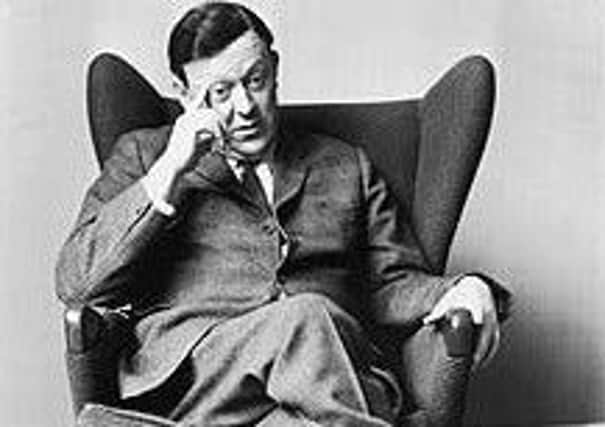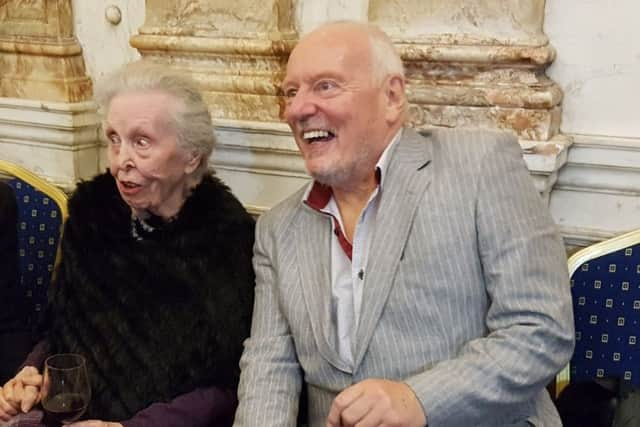Dublin society rehabilitates the far sighted Conor Cruise O'Brien


President Michael D Higgins attended as did former President Mary Robinson. There was a full turn out of revisionist writers and historians ,not to mention former deputy editor of the Irish Times Dennis Kennedy. No unionist he, as he reminded us, but he joined in the praise of O’Brien and the laceration of Irish Republicanism that marked out also the barnstorming contribution by Eoghan Harris, journalist and former RTE editor. The major oppositional speaker was the Northern Ireland writer and feminist Susan McKay.
In many ways this was the beginning of a rehabilitation for the Cruiser, Ireland’s premier public intellectual. In his life, he had been diplomat, UN representative in the Congo, Labour Party TD, Minister in the 1973-77 Coalition government (and importantly Northern Ireland spokesman), TCD Senator, Editor of The Observer and author of several hugely influential books including States of Ireland in 1972 and the 1994 volume Ancestral Voices.
Advertisement
Hide AdAdvertisement
Hide AdIt was his last prominent role, being elected in 1996 as a UK Unionist to the Northern Ireland Forum, and his subsequent participation in the Castle Buildings Talks that brought about his fall from grace. This was particularly so for many people in the south. He became seriously unfashionable and sadly suffered a stroke during the talks. Those who hated him for his relentless attacks on the simplistic One Nation Republican view were never going to revise their opinions but those who could not fathom a nationalist like O’Brien becoming a public unionist felt he had crossed the line.


I was working for the UK Unionist MP Robert McCartney at the time and so came to know Conor and his Gaelic poet wife, Máire Mhac an tSaoi, on their many trips north. She is the daughter of the prominent Fianna Fail TD and eventual Tánaiste, Sean McEntee, who was born in Belfast. Her uncle was Cardinal Browne. Conor came from a family of Irish MPs, both Home Rulers and radicals, and married in effect two Irish nationalists, the first an Ulster Protestant, Christine Foster, daughter of a prominent head teacher in Northern Ireland.
It has to be remembered that at that time, Bob McCartney’s reputation was as a liberal Unionist while his party majored on an integrationist policy, trying especially to get the Labour and Conservative parties to organise in Northern Ireland. I pointed out in Dublin what became obvious later: Conor was not a Unionist nor indeed an integrationist. He was a 26-county patriot willing to sacrifice everything to protect and maintain that state’s stability against the depredations of the IRA and southern collusion with it or hardline nationalism.
At the referendum in the south in June 1998, 94% voted to end the claim to Northern Ireland in Articles 2 and 3 of the Irish constitution. This enormous majority proved that Conor had been incredibly successful. It also illustrated the lack of courage of southern governments who could have grasped this nettle decades earlier and removed the main ideological source of justification for the IRA.
Advertisement
Hide AdAdvertisement
Hide AdI was reminded of an earlier moment in April 1972 at Iveagh House when I was part of a group of northern radicals who chained ourselves to radiators within the building unfurling a banner ‘Recognise Northern Ireland’. Conor was generous enough to go bail for the dozen or so without sufficient assets who were detained in Mountjoy prison.


Conor died in 2008 and his funeral, as several remarked on Friday, was poorly attended. Máire who is the same age as the state, the title of her autobiography, attended the celebratory reception at the Department of Foreign Affairs in Iveagh House and looked mightily pleased at Dublin’s change of heart. Conor was being welcomed back.